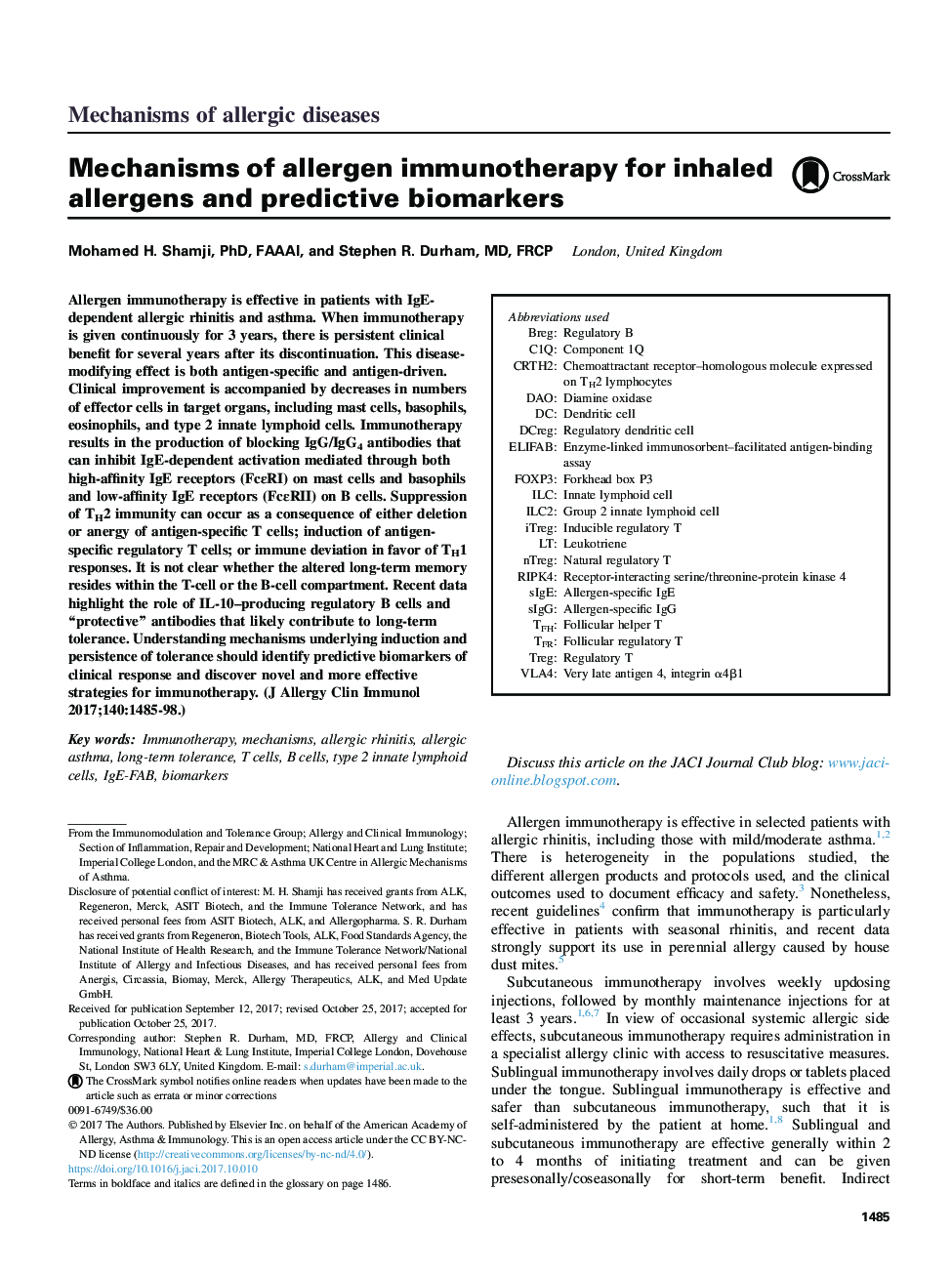| Article ID | Journal | Published Year | Pages | File Type |
|---|---|---|---|---|
| 8713899 | Journal of Allergy and Clinical Immunology | 2017 | 14 Pages |
Abstract
Allergen immunotherapy is effective in patients with IgE-dependent allergic rhinitis and asthma. When immunotherapy is given continuously for 3 years, there is persistent clinical benefit for several years after its discontinuation. This disease-modifying effect is both antigen-specific and antigen-driven. Clinical improvement is accompanied by decreases in numbers of effector cells in target organs, including mast cells, basophils, eosinophils, and type 2 innate lymphoid cells. Immunotherapy results in the production of blocking IgG/IgG4 antibodies that can inhibit IgE-dependent activation mediated through both high-affinity IgE receptors (FcεRI) on mast cells and basophils and low-affinity IgE receptors (FcεRII) on B cells. Suppression of TH2 immunity can occur as a consequence of either deletion or anergy of antigen-specific T cells; induction of antigen-specific regulatory T cells; or immune deviation in favor of TH1 responses. It is not clear whether the altered long-term memory resides within the T-cell or the B-cell compartment. Recent data highlight the role of IL-10-producing regulatory B cells and “protective” antibodies that likely contribute to long-term tolerance. Understanding mechanisms underlying induction and persistence of tolerance should identify predictive biomarkers of clinical response and discover novel and more effective strategies for immunotherapy.
Keywords
FOXP3DCregNatural regulatory TsIgGVLA4Chemoattractant receptor–homologous molecule expressed on TH2 lymphocytesRIPK4regulatory Bfollicular helper TnTregC1qTFHiTregILC2TregTFRCRTH2ILCAllergen-specific IgEAllergic asthmaimmunotherapyBregforkhead box P3DAODiamine oxidaseAllergic rhinitisDendritic cellinnate lymphoid cellB cellsT cellstype 2 innate lymphoid cellsGroup 2 innate lymphoid cellLeukotrieneRegulatory T MechanismsBiomarkerssIgE
Related Topics
Life Sciences
Immunology and Microbiology
Immunology
Authors
Mohamed H. PhD, FAAAI, Stephen R. MD, FRCP,
